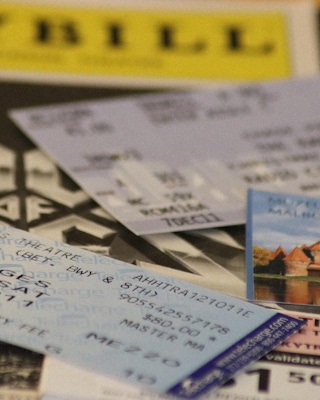
Recognizing the Problem
Less than 10% of tickets sold to sporting and entertainment events are available for the public to buy at face value. The cause is the second-hand ticket market enabled by legions of bots that gobble up tickets the instant they go on sale, eliminating availability for the general public. While legislators, artists and venues have attempted to address this, the massive profit margins second-hand sellers reap has created a $15 billion industry and enormous barriers to change ©. Sports Illustrated Tickets (formerly ShooWin) was a face-value ticket platform established to combat this problem.
Founded by some of Broadway’s leading investors, the platform was focused on bringing access to major sporting and live music events. Through partnerships with the NCAA, the NFL and Live Nation, Sports Illustrated Tickets was building access to ticket inventories and offering artists and sports teams the opportunity to ensure real fans were not priced out of the marketplace.

Motivations Drive Behaviors
Tertiary research was easily able to diagnose scalping as the core driver of face-value inventory issues. Empty stores in diminishing shopping malls were being rented to house racks of servers that were programmed to continually ping ticket sites and scalp inventory indiscriminately. While scalpers knew their margins would be lower on some tickets than others—indeed, some may not sell at all—in the aggregate, there were vast profits to be made, with average markups running up to 200%. For scalpers, the ticket business was about volume above all else. This proved to be the core behavioral insight that opened opportunities for Sports Illustrated Tickets.

Gangs of hardened ticket-speculators exist and carry on their atrocious trade with perfect shamelessness.
Real Fans and Frequency
Combo strategists recognized early that a gating system that relied on standard verification systems or captcha would easily be overrun by scalpers and their bots. And so rather than keeping scalpers off platform, the strategy team focused on creating a system that would penalize their behavioral instincts to indiscriminately buy every ticket available. Real fans operate in exactly the opposite manner. They save their hard-earned money so that they have the resources to purchase that one ticket to a Taylor Swift concert or a New York Jets’ playoff game they’ve been waiting for their whole lives. This dedication and sacrifice the real fans make, waiting patiently for the opportunity to attend that one special event, enabled Combo to design a frequency-spectrum-gating model focused on the radically different behaviors of scalpers and real fans.
Nearly 40% of ticketing traffic is comprised of ‘bad bots.’
Simplified Model Design
With this guiding framework, Combo strategists still had to create a model that established interference between intent and purchase to block scalpers. Strategists did this through a ranking design that rewarded inaction and penalized aggressive engagement. Through various brand touchpoints, the team created an access ranking that ensured real fans’ discerning purchase patterns were married to more open access to the premiere event tickets they sought and then blocked access to scalpers and bots who we could identify by their rapid purchase patterns.

New business: Connect with a partner.
Job inquires: View our handbook.
Newsletter©: Sign up.
Combo
76 Bowery, 3rd Floor
NYC, 10013
Social Media
Instagram, Behance, LinkedIn
View our show reel:
Watch video
General inquiries:
hello@combo.co
Media inquires:
press@combo.co